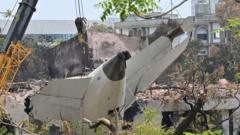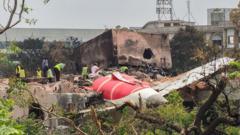Karim Khan’s resignation as chief prosecutor of the International Criminal Court follows serious accusations of sexual misconduct, a situation that has garnered worldwide attention.
Chief Prosecutor of the ICC Steps Down Amid Misconduct Investigation

Chief Prosecutor of the ICC Steps Down Amid Misconduct Investigation
Karim Khan, the chief prosecutor, has taken a temporary leave as the ICC investigates allegations of sexual misconduct against him.
Karim Khan, known for issuing arrest warrants against high-profile leaders like Israeli Prime Minister Benjamin Netanyahu and Russian President Vladimir Putin, has announced his temporary resignation from the International Criminal Court (ICC) pending an investigation into allegations of sexual misconduct. This move comes as pressure mounts for him to step aside while the allegations are explored.
Mr. Khan, who has denied accusations of sexual harassment, communicated his intention to leave the post to the court's officials last Friday. The allegations surfaced in October from a colleague who reportedly claimed that Mr. Khan engaged in inappropriate behavior and attempted to silence her. Following these revelations, the ICC initiated an independent investigation to ensure fairness and impartiality in addressing the charges.
Amidst heightened scrutiny, particularly following a Wall Street Journal article detailing testimonies regarding the allegations, calls for Mr. Khan's resignation intensified. The article indicated that the female colleague alleged he had forced her into a sexual encounter. In response, Mr. Khan has repeatedly asserted his innocence and maintained his commitment to cooperating fully with the investigation.
Khan's legal team has stated that he is keen to clear his name and return to his duties as soon as possible, emphasizing that the investigation's outcomes will determine his future at the ICC. The court, located in The Hague, maintains its commitment to addressing allegations of misconduct seriously while ensuring that all parties involved receive due process during the inquiry.




















